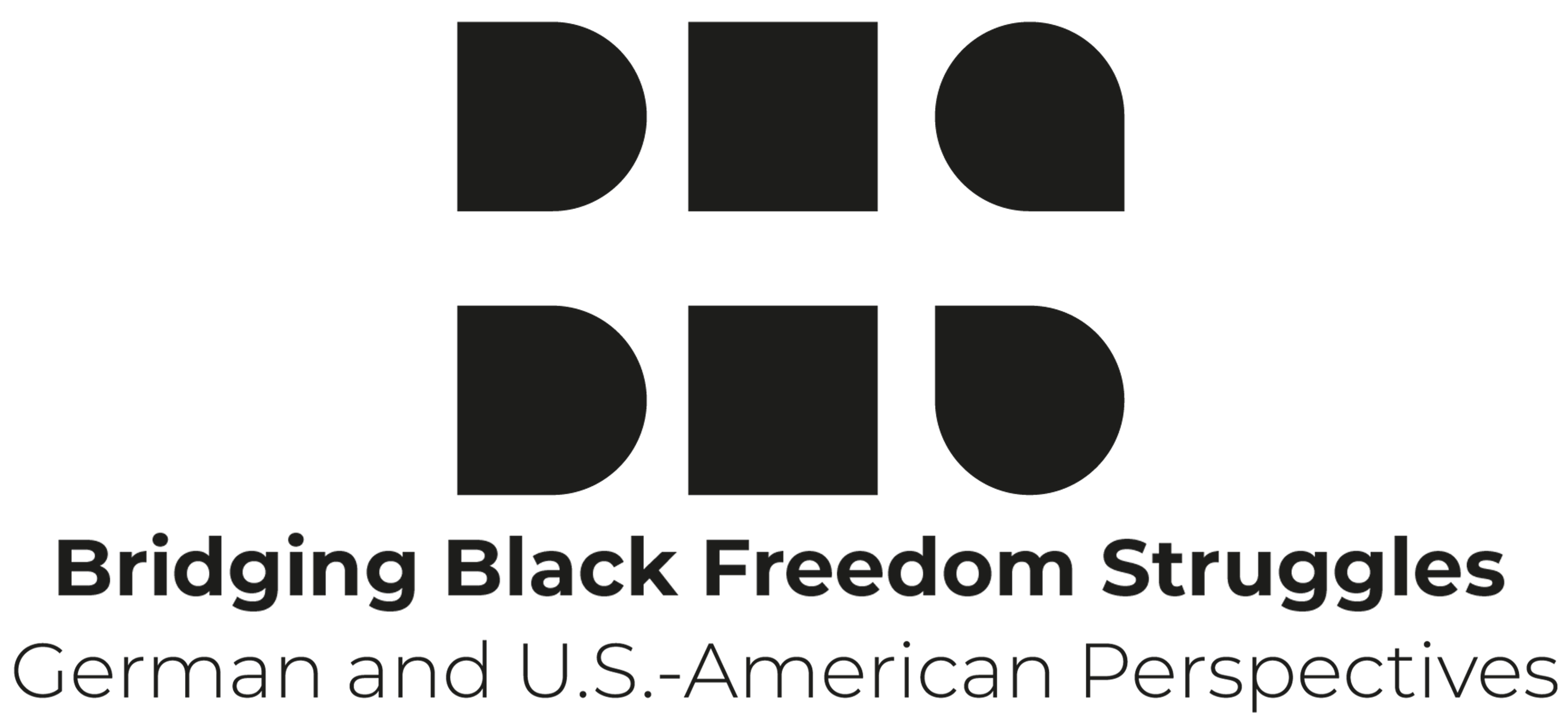The interdisciplinary network runs from 2022 to 2026 and brings together scholars of American Studies, History, Sociology, Theology, Literary and Cultural Studies to work on Black freedom struggles, understood as the long Civil Rights Movement (CRM), from a decidedly transnational perspective. Funded by the German Research Foundation (DFG) the network seeks to establish bridges, across and beyond the Atlantic, various disciplines and perspectives, including different eras with the goal of contextualizing the CRM in its historical pasts, present, and outlook for the future.
Specifically, the aim of the network is threefold:
(1) to revisit selected aspects of the history and historiography, with a focus on the commemorative culture of the Black freedom struggles. In doing so, we conceptualize the work toward Black liberation not just as a protest movement but as a larger, on-going social movement at the nexus between history, cultural and literary studies, sociology, and theology;
(2) to highlight its continuing relevance across the Atlantic, i.e. the U.S., Africa and Europe, Germany in particular. Hence, we strive to expand networks of research collaboration and acknowledge constellations of Black freedom struggles beyond dominant Euro-U.S. paradigms of the Atlantic.
(3) to uncover the historical and current socio-cultural readings of Blackness and whiteness and deploy concepts such as racial capitalism and environmental racism. The persistence of white supremacy and (unmarked) whiteness necessitates the continuation of the Black freedom struggle to this day. The critical (self-)reflection on whiteness as well as the network’s diversity regarding gender, race, and class, contributes to anti-racist, anti-sexist, and less discriminatory academic practice.
Overall, the number of scholars who focus on the long CRM through the lens of East, West and unified German history and culture remains rather limited. Our proposed network adds to the predominantly English-speaking discourse, not just in terms of our language skills but mainly in terms of further contributing to the debates that have shaped the (reception of) Black freedom struggles outside the U.S. context and place these within a larger transatlantic dialogue and context. In doing so, network members assume a double role when ‘bridging’ the gap over the Atlantic, i.e. as mediators of academic discussions on both sides and as bearers of their respective country’s perspective without privileging a homogenous narrative. Some of the figures that will be examined in projects under this network include Albert B. Cleage Jr., Paul and Eslanda Robeson, Angela Davis, Walter Rodney, James Baldwin, May Ayim, Cedric Robinson, Al Hoosman, and Olumide Popoola. In addition, the Black church, family, Instagram and other medial arenas are some of the institutions that will be interrogated. Click on the menu to read the individual bio and project description for each of the scholars in this network.
